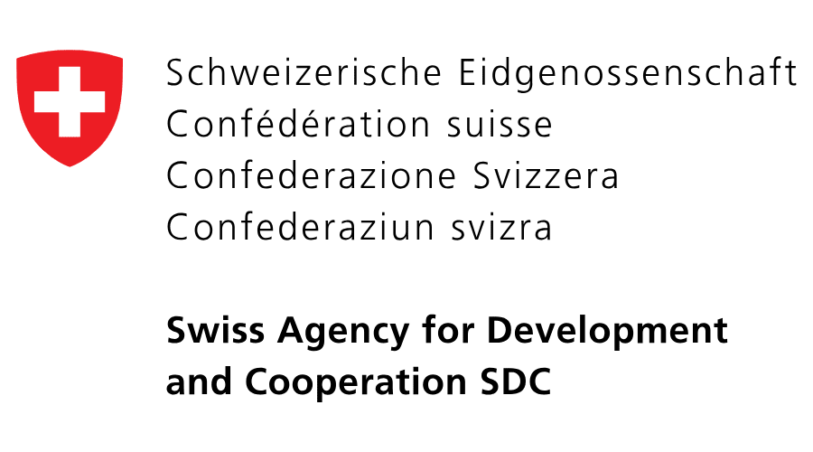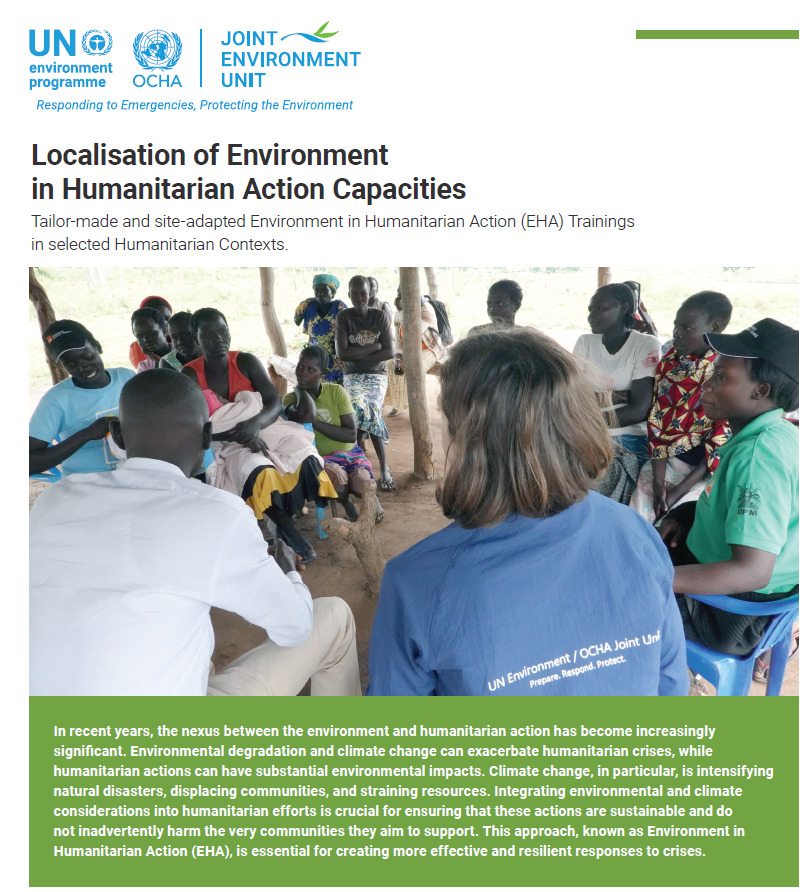Localisation of Environment in Humanitarian Action (LEHA) :
Tailor-made and site-adapted Environment in Humanitarian Action Trainings in selected Humanitarian Contexts
In recent years, the nexus between the environment and humanitarian action has become increasingly significant. Environmental degradation and climate change can exacerbate humanitarian crises, while humanitarian actions can have substantial environmental impacts. Climate change, in particular, is intensifying natural disasters, displacing communities, and straining resources. Integrating environmental and climate considerations into humanitarian efforts is crucial for ensuring that these actions are sustainable and do not inadvertently harm the very communities they aim to support. This approach, known as Environment in Humanitarian Action (EHA), is essential for creating more effective and resilient responses to crises.
The “Localisation of Environment in Humanitarian Action” project aims to enhance the capacity of local actors in integrating environmental considerations into humanitarian actions. Utilizing the curriculum from the JEU’s existing online course “Environment in Humanitarian Action (EHA),” the project will update and adapt the content to reflect the latest knowledge and developments. The training will be tailored to the specific contexts and needs of two selected countries. The updated EHA training will be extended into a comprehensive 5 to 7-day program, followed by a 2-day Training of Trainers (ToT) session.
Key Outcomes
- Enhanced capacity on environment in humanitarian action: The project aims to significantly enhance the capacity of local actors to integrate environment in humanitarian actions, thereby making humanitarian actions more effective, efficient, sustainable and contextually appropriate.
- Localization and Nexus Integration: The project’s focus on enabling local actors and engaging development stakeholders aligns with the growing emphasis on localization in humanitarian and development work. By involving those who are closest to the challenges, the project ensures that responses are culturally relevant and contextually sensitive.
- Knowledge Sharing and Replication: By training local actors to become trainers themselves, the project intends a sustainable cycle of knowledge dissemination.
Project Phases
Phase one – Development of Training Template:
A global template was created to serve as a comprehensive guide for training development. The template consists of the following:
- Preface:
-
- List of contributors and reviewers
- Forward message
- Glossary of key terms
- 1 Introductory Module
- 11 Technical Modules
- 1 ToT Module
Phase two – Contextualised training delivery in 2 countries:
A localised and contextulised training will be delivered in 2 countries. The trainings aim to empower local humanitarians with the needed tools and guidelines to integrate environmental sustainability into their project. Somalia was chosen to be the first country of implementation. The second country is to be announced soon.
Phase three – Development of country network and partnerships:
in each of the 2 pilot countries, a network will be developed to bring together EHA trained humanitarians along with environmental experts and local initiatives. The network will ensure the sustainability of the project beyond the training delivery and the continuity of capacity building and knowledge sharing.
Stakeholders
Humanitarian practitioners from local actors, and local partners:
- Local non-governmental and community-based organizations
- Relevant local governmental entities and authorities

- Development and Environment organizations
- International and Multilateral Organizations
The project is funded and supported by the Swiss Agency for Development and Cooperation (SDC)
Fact Sheet


